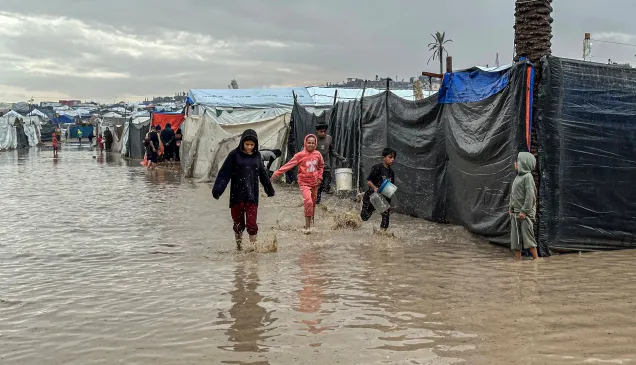Friday is the day of prayers and rest in Gaza. Since violence escalated, it has become the busiest day of the week for the hospital staff. “All week we wait for Friday, wondering how it will go and preparing for the worst,” a nurse said. On Friday, doctors and nurses are on duty since morning.
Hospitals in Gaza handling influx of wounded against all odds
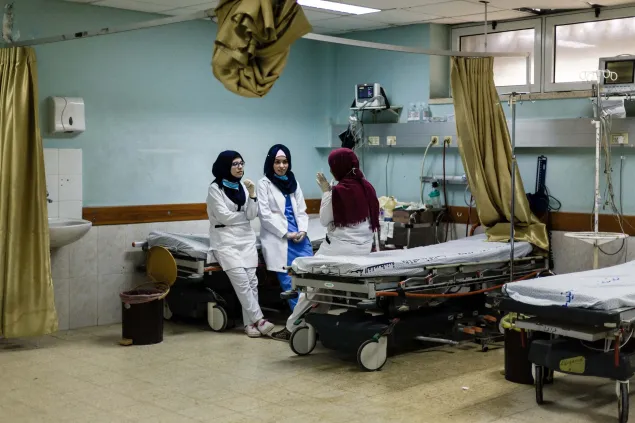
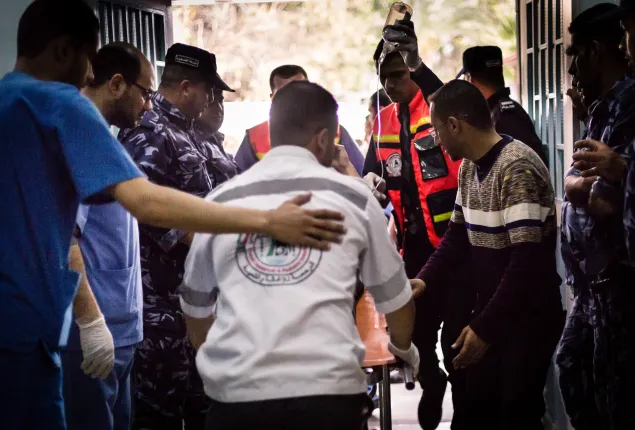
One minute the atmosphere in the hospital is of peace and quiet, but as soon as ambulances start arriving, the place transforms. The wounded are rushed in, often followed by friends and relatives. Emotions run amok.
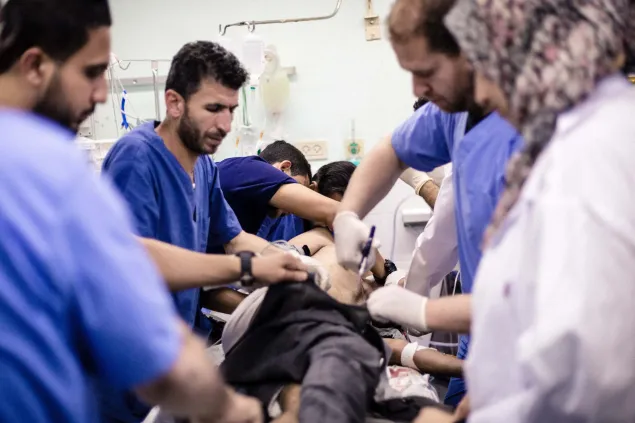
Doctors and nurses have been working long hours to respond to the crisis. Somehow, while they are on duty, the fatigue does not show.
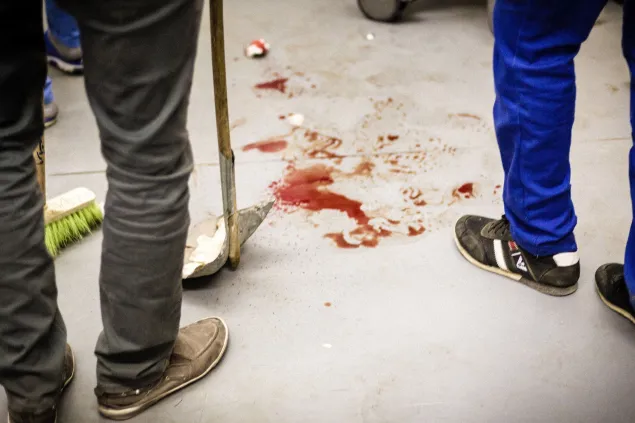
The emergency room is being quickly prepared for the next patient.
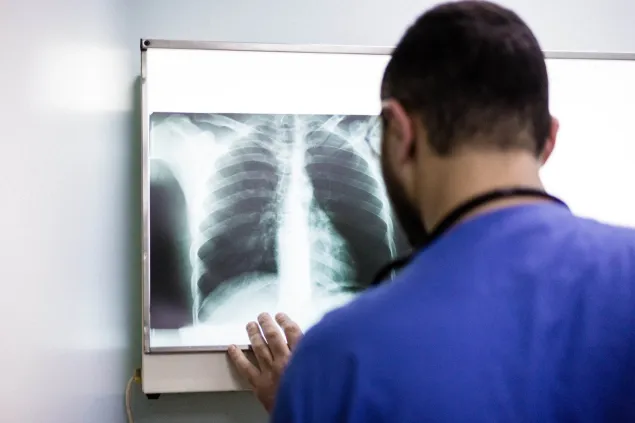
Hospitals are receiving an average of four to eight hours of electricity per day.
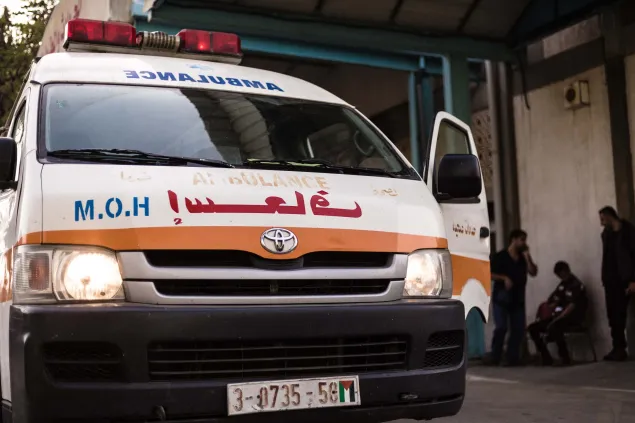
Ambulance is ready to answer the next call.
In the middle of the surgery, the operating theater went pitch dark. All you could see were two tiny monitors showing the patients' vital signs. When the light came back, powered by a generator, medics continued their work. They had a lot to do.
Almost 2,000 people were wounded and required urgent medical attention as violence escalated in the border area of Gaza, the past several weeks. When I spoke to doctors and nurses, physical and psychological fatigue showed. Some were saying that for them, the current crisis awakened the trauma of 2014 war. Others felt frustrated not to be able to do more for their patients.
Weakened by shortage of drugs and medical supplies, severe restrictions of movement, chronic energy crisis and worsening economic situation, Gaza's health sector is struggling to cope with the influx of wounded. Hospital staff face the difficult dilemma of prioritization. "Every day I have to make a decision - to discharge a patient or keep them in. Many of them live in poverty and I know that if I discharge them they will not get the care they need at home. If I keep them here, we may not have enough hospital beds," says Dr Ahmad, a surgeon at Gaza Indonesian Hospital.
Hospital personnel themselves know very well what it means to struggle economically. Some do not have the means to afford the cost of transportation to come to work.
Still, every Friday, the most tense day of the week, they are there - ready, calm and in control. They quickly assess each patient, comfort emotional relatives and keep going, against all odds.



